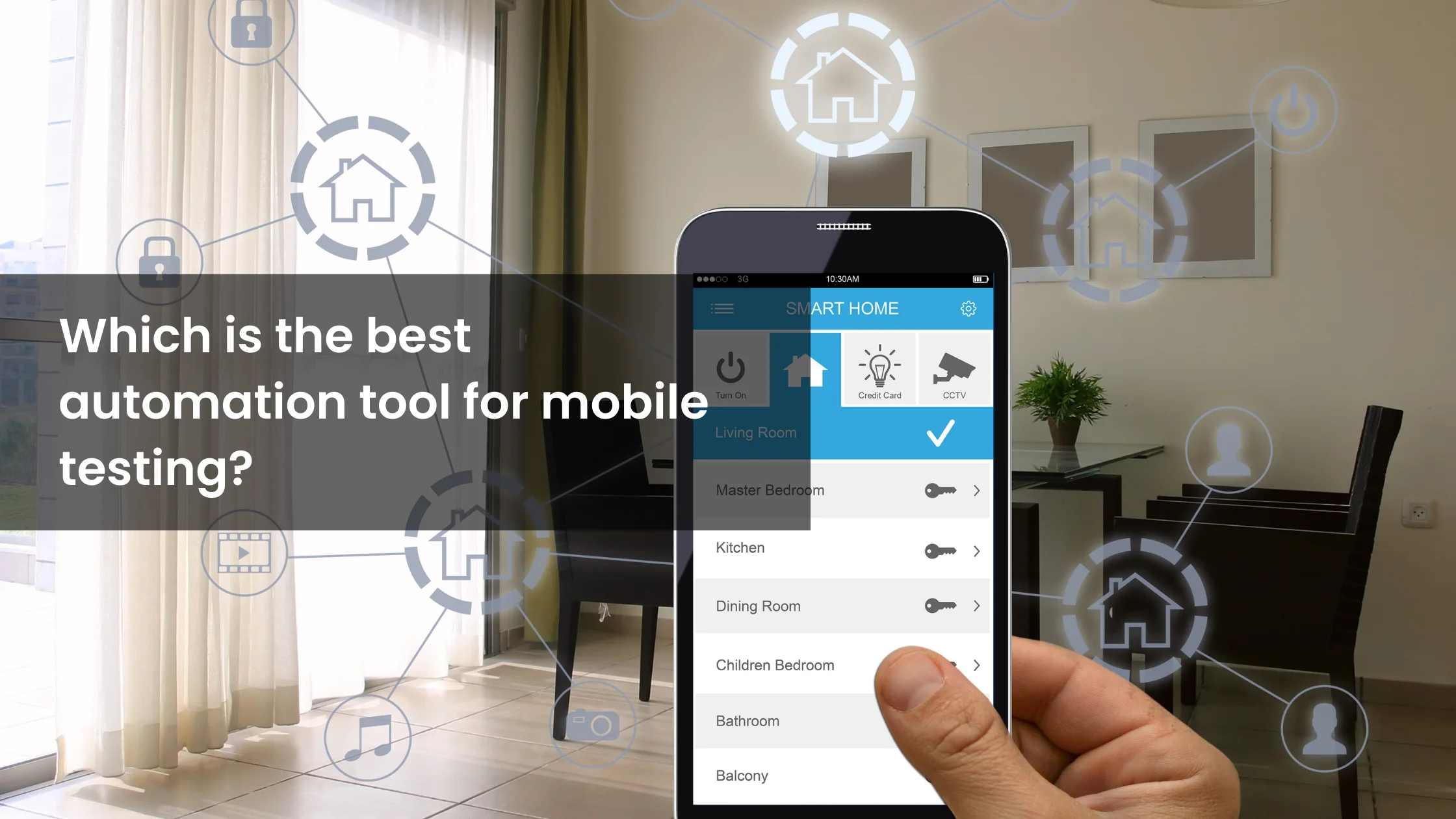In today's fast-paced software world, automation is a game-changer for testers. Imagine running hundreds of test cases by hand—it’s exhausting and time-consuming. That’s where automation tools step in, saving you from boring, repetitive tasks and giving you more time to focus on the important stuff. Whether you're a QA engineer, developer, or team leader, knowing these tools can boost your testing speed and software quality.
In today's fast-paced software world, automation is a game-changer for testers. Imagine running hundreds of test cases by hand—it’s exhausting and time-consuming. That’s where automation tools step in, saving you from boring, repetitive tasks and giving you more time to focus on the important stuff. Whether you're a QA engineer, developer, or team leader, knowing these tools can boost your testing speed and software quality.
Let’s dive into the best automation tools for software testing in 2024, their top features, and how to choose the right one for your needs.he best automation tools for software testing in 2024, their top features, and how to choose the right one for your needs.
1. Introduction to Automation in Software Testing
Why is automation such a big deal in software testing? Imagine this: you've got a new software update to test. It’s crunch time, and your manual testers are scrambling to execute test cases, log bugs, and retest fixes. Sounds chaotic, right? That's where automation testing comes to the rescue, allowing you to run repetitive test cases efficiently, quickly, and with fewer human errors.
Benefits of Automation Testing:
- Speed and Efficiency: Automated tests can run 24/7 without coffee breaks. Need to run 1,000 test cases overnight? No problem.
- Consistency: Machines don’t get tired or distracted, which ensures consistent test results.
- Cost-Effectiveness: While the initial setup might require an investment, automation can save you money in the long run by reducing manual testing hours.
- Scalability: Automate once, run multiple times across different platforms, devices, and environments.
2. Top Automation Tools for Software Testing in 2024
With a plethora of tools out there, choosing the best one can feel like finding a needle in a haystack. But fear not—we’ve got you covered! Below are some of the top automation tools that are making waves in the industry.
| Tool Name | Best For | Key Features | Pricing |
|---|---|---|---|
| Selenium | Web applications | Open-source, cross-browser support, strong community | Free |
| Appium | Mobile applications | Supports both Android & iOS, easy integration | Free |
| TestComplete | Desktop, mobile, web apps | Record & playback, AI-powered object recognition | Paid (Trial available) |
| JMeter | Performance testing | Open-source, load testing, multiple protocols support | Free |
| Postman | API testing | Easy-to-use UI, automated tests, CI/CD integration | Free & Paid plans |
2.1. Selenium: The Web Testing Maestro
If you're into web application testing, you've probably heard of Selenium. It’s an open-source tool that supports multiple browsers (Chrome, Firefox, Safari, you name it!) and programming languages like Java, Python, and C#. Selenium allows you to write test scripts that mimic user actions, making it ideal for automating browser testing.
Key Features: - Cross-browser support - Supports parallel test execution - Strong community and extensive documentation
Best For: Regression testing, cross-browser testing, and automation scripts.
2.2. Appium: The Go-To for Mobile Testing
Got a mobile app to test? Appium is your best friend. This open-source tool supports both Android and iOS platforms, allowing you to write tests in your preferred language (like JavaScript, Python, or Ruby).
Key Features: - Cross-platform support (write once, run on both Android and iOS) - No need to modify the app code for testing - Integration with CI/CD tools
Best For: Mobile application testing, cross-platform testing.
2.3. TestComplete: All-in-One Testing Tool
For those who need a more comprehensive solution, TestComplete is a powerful tool that supports web, desktop, and mobile applications. It’s known for its record-and-playback feature and AI-powered object recognition, making it user-friendly for beginners while providing advanced features for experienced testers.
Key Features: - Supports multiple scripting languages (Python, VBScript, JavaScript) - Easy integration with CI/CD tools - Data-driven and keyword-driven testing
Best For: Functional testing, regression testing, and UI testing.
3. How to Choose the Right Automation Tool
Choosing the right automation tool isn’t a one-size-fits-all situation. It depends on factors like your project requirements, budget, and technical expertise.
Considerations when choosing a tool: 1. Project Requirements: Are you testing a web, mobile, or desktop app? Tools like Selenium are perfect for web, while Appium shines for mobile testing. 2. Skill Level: If your team is new to automation, tools with record-and-playback features like TestComplete can be helpful. 3. Budget: Open-source tools like Selenium and Appium are budget-friendly, while premium tools offer advanced features but come with a price tag. 4. Integration with CI/CD: If you’re into DevOps, ensure your automation tool supports continuous integration/continuous deployment pipelines.
4. Future Trends in Automation for Software Testing
The future is bright for QA automation. With emerging technologies like AI and ML, automation tools are getting smarter, allowing for self-healing scripts, better object recognition, and predictive analytics. Here are some trends to watch out for:
- AI-Powered Testing: AI can optimize test cases, predict potential failures, and even write automated tests.
- Robotic Process Automation (RPA): Automating repetitive tasks beyond testing, helping businesses optimize processes.
- IoT Testing: With the rise of smart devices, testing IoT applications will become crucial. Check out IoT device testing for more insights.
5. Conclusion
To wrap things up, automation tools are game-changers in the world of software testing. They can boost your productivity, reduce errors, and save costs in the long run. However, the key to success lies in choosing the right tool that aligns with your project needs and skill set. Whether it’s the mighty Selenium for web testing, the versatile Appium for mobile, or the all-in-one TestComplete for comprehensive testing, there’s a tool out there that’s just right for you.
Ready to supercharge your testing efforts? Don’t hesitate to reach out! Contact us to find the perfect automation solution tailored to your needs.
 Hello there, tech enthusiast! So, you're diving into the world of software testing, huh? Excellent choice! But let’s be real, it can be a bit overwhelming at times, right? Especially when it comes to automation testing tools. Don't worry, we’ve got your back. In this post, we’ll walk you through some of the easiest automation software testing tools that even your grandma could master (well, if she’s tech-savvy).
Hello there, tech enthusiast! So, you're diving into the world of software testing, huh? Excellent choice! But let’s be real, it can be a bit overwhelming at times, right? Especially when it comes to automation testing tools. Don't worry, we’ve got your back. In this post, we’ll walk you through some of the easiest automation software testing tools that even your grandma could master (well, if she’s tech-savvy). Let’s talk about mobile testing. In a world where our phones are practically an extension of ourselves, ensuring that mobile apps work flawlessly is more crucial than ever. So, you’re probably wondering, “Which is the best automation tool for mobile testing?” Well, buckle up, because we’re about to take a fun ride through the world of mobile testing tools!
Let’s talk about mobile testing. In a world where our phones are practically an extension of ourselves, ensuring that mobile apps work flawlessly is more crucial than ever. So, you’re probably wondering, “Which is the best automation tool for mobile testing?” Well, buckle up, because we’re about to take a fun ride through the world of mobile testing tools!